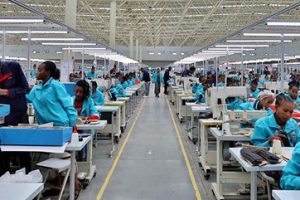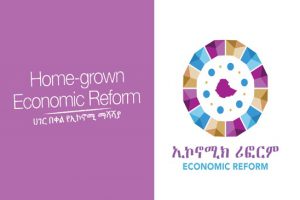This particular downtown area of Addis Ababa is usually bustling with activities as money changers crowd the small area around the National Theatre where buyers and sellers of hard currency meet to do business in a not so secretive way despite the recent ban on illegal hard currency black market. Newcomers to the area are often welcomed with inquiries about whether they are looking for local or foreign currencies.
The young money changers usually accost you with an air of uncertainty with their eyes skimming the area in fear of plainclothes policemen who might be lurking somewhere along the teashops and restaurant that are usually frequented by middle class people and car brokers waiting for potential clients, their phones in their hands.
In the last couple of months, this area look a bit desolate as money changers and brokers look forlorn and whenever you ask them how business is their answer is something like “Ayeru Aynefam” meaning business is poor. The young magazine vendors who often double as money changers would tell you that thei daily incomes have dwindled and they find it hard to get enough money for food and their daily treat of khat , the narcotic leaf to which some of them are addicted.
“Aynefam!” they would tell you again, with faces that reflect sadness and anger rather than hope. “Only those who have money live the good life in this country..” they would add, as if their miseries were caused by the rich people who drive by in luxury cars. They would soon divert their discussion to more mundane issues like English Premier league soccer that is usually serving as a diversion away from serious matters.
However, their discontents go deeper than their casual remarks would suggest. The last nine or ten months in Ethiopia have witnessed momentous changes in politics but the economy still remains a headache to the leaders of the ongoing reform program in the country. This is also an existential threat to tens of millions of people in the low income bracket. Macroeconomic stability might not yet be seriously affected. But we can talk about economic slowdown at this stage. There are also disturbing signs that the economy might be heading for some trouble.
The cost of living is skyrocketing. Inflation is eating up incomes of citizens across the board. Business is almost at an all time low in most of Addis Ababa’s business hubs like Mercato that can be used as the thermometer of economic activities. On the other hand, illegal economic operations are flourishing judging by the contraband goods that are being seized almost every other week, excluding the arms or weapons that may have political causes for their proliferation.
The dollar’s exchange rate seems to have been tamed to some extent but the black market is thriving right under the nose of the National Bank, across the street from its headquarters. The hard currency control freaks who tried to attract foreign currency from the wilderness of the black market to the counters of the banks seem to have fallen victims to a kind of financial fatigue. Citizens seem to have exhausted their patriotic zeal that was evident in the couple of months after the government’s call for the rule of law and legality in the financial sector.
We cannot of course blame all the indicators of economic slowdown on the black market or on rampant corruption. By the way, recent figures indicate that corruption in Ethiopia has gone down and its standing in this area has substantially improved compared to many African countries. So. corruption, which has often been demonized as the single most formidable threat to the country is no more the boogie man that once frightened the economy with terminal illness.
According to recent information coming from international sources, governance is still the weak underbelly of the reform process. Governance is not something that can be changed overnight particularly in a time like the present when sporadic ethnic based violence and human displacements are creating administrative vacuums in some parts of the country. Resistance to change coming from the EPRDF old guard is another serious constraint.
What the present government calls ‘anti-change forces’ are allegedly sabotaging the reform process with the networks and connections they built and the experience they have accumulated during their long years running the economy. Generally speaking, political transitions are bound to create uncertainties that are translated in poor economic performance. Add to this the recent disclosure that 8.3 million people are in grave danger of facing urgent or chronic relief assistance.
More than 3 million people are victimized by the recent ethnic conflicts and need urgent assistance so that they can start normal economic activities after they have been repatriated. More than 3 million people live in areas that are chronically affected by adverse climatic events and largely depend on donations from domestic and local sources.
The Ethiopian Herald, Sunday Edition May 12/2019
BY MULUGETA GUDETA





